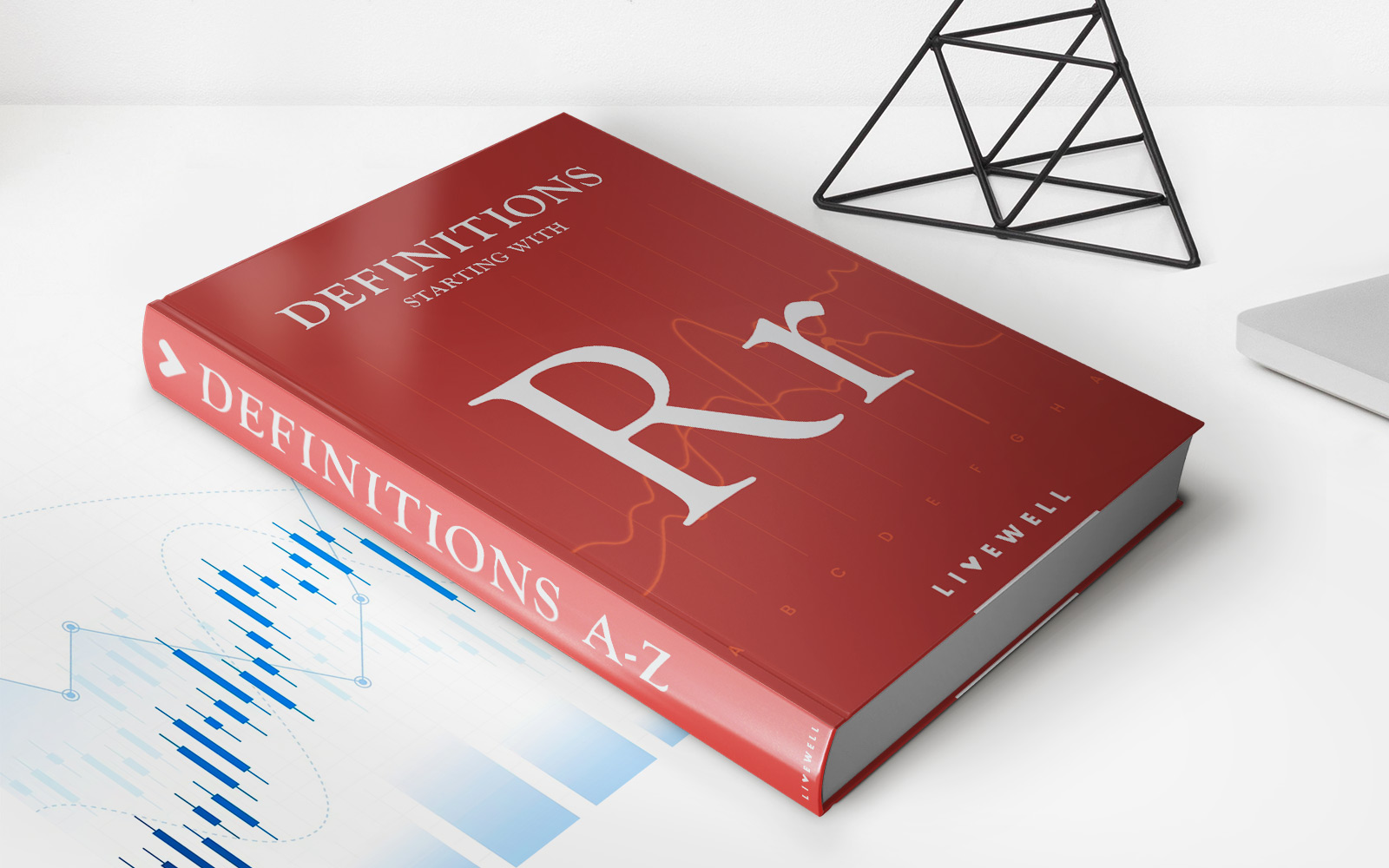

Finance
What Are Credit Card Finance Charges
Modified: February 21, 2024
Discover what credit card finance charges are and how they impact your financial management. Understand the importance of managing your finances and avoiding unnecessary charges.
(Many of the links in this article redirect to a specific reviewed product. Your purchase of these products through affiliate links helps to generate commission for LiveWell, at no extra cost. Learn more)
Table of Contents
Introduction
When it comes to managing your finances, understanding credit card finance charges is crucial. These charges are an important aspect of credit card usage and can greatly impact your overall financial well-being. In this article, we will delve into the world of credit card finance charges, exploring what they are, how they are calculated, and what factors can influence them.
Put simply, credit card finance charges are the fees that credit card issuers charge for borrowing money or carrying a balance on your credit card. These charges can apply if you carry a balance from one month to another, or if you make cash advances using your credit card. It’s important to note that not all credit card transactions incur finance charges, as they are typically only applicable to balances that are not paid off in full by the due date.
Understanding credit card finance charges is essential because they can significantly impact the cost of using your credit card. If you are not aware of these charges or fail to pay them on time, you may end up accumulating additional debt and paying more in interest over time.
In the following sections, we will explore the different types of credit card finance charges, learn how they are calculated, and discuss the factors that can affect these charges. We will also provide some tips on how to effectively manage and minimize credit card finance charges.
Understanding Credit Card Finance Charges
To fully grasp credit card finance charges, it’s important to understand how credit card companies make money. While credit cards offer convenience and purchasing power, they are also a form of lending. When you use a credit card, you are essentially borrowing money from the card issuer.
Credit card finance charges are the cost associated with this borrowing. When you carry a balance on your credit card from one month to the next, you are being charged interest on that balance. This interest is what we commonly refer to as finance charges.
It’s crucial to note that credit card finance charges are not fixed and can vary depending on various factors. These factors include the outstanding balance, the interest rate (also known as the Annual Percentage Rate or APR), and the length of time you carry the balance. Generally, credit card companies calculate finance charges based on the average daily balance or the daily periodic rate multiplied by the number of days in the billing cycle.
It’s also important to be aware that different types of credit card transactions may have different finance charges. For example, cash advances typically come with higher finance charges compared to regular credit card purchases. This is due to the additional risk involved in providing cash advances and the higher interest rates typically associated with them.
Furthermore, credit card companies may offer a grace period during which no finance charges are incurred. The grace period is usually between 21 and 25 days from the billing cycle’s closing date. However, this grace period only applies if you pay your balance in full by the due date. If you carry a balance, the grace period does not apply, and finance charges will accrue from the date of the transaction.
Understanding credit card finance charges is essential for making informed financial decisions. By being aware of how these charges are calculated and the different factors that influence them, you can better manage your credit card usage and minimize the impact of finance charges on your overall debt.
Types of Credit Card Finance Charges
When it comes to credit card finance charges, there are several types that you should be aware of. Understanding these different charges can help you navigate the world of credit card usage and make informed decisions about your borrowing and spending habits.
- Interest Charges: Interest charges are the most common type of credit card finance charges. These charges accrue when you carry a balance from one billing cycle to the next. The interest rate, or APR, determines the amount of interest you will pay on your outstanding balance. It’s important to note that different credit cards may have different interest rates, so it’s essential to compare rates before choosing a credit card.
- Cash Advance Fees: If you use your credit card to obtain cash, either from an ATM or through other cash advance methods, you will likely incur cash advance fees. These fees are typically either a flat amount or a percentage of the cash advance amount and can be in addition to any interest charges that apply. Cash advance fees tend to be higher than regular credit card transaction fees, so it’s important to consider this when using your card for cash advances.
- Balance Transfer Fees: Balance transfer fees come into play when you transfer existing balances from one credit card to another. These fees are typically a percentage of the balance being transferred and can vary from card to card. Balance transfer fees can be a one-time charge, and they may or may not be subject to interest charges depending on the terms of the credit card.
- Late Payment Fees: Late payment fees are charged when you fail to make the minimum payment by the due date. These fees are typically a fixed amount and can be quite substantial. It’s important to always pay your credit card bill on time to avoid late payment fees and protect your credit score.
- Overlimit Fees: Overlimit fees may apply if you exceed your credit card’s credit limit. These fees can be a fixed amount or a percentage of the amount by which you went over your limit. It’s crucial to monitor your credit card usage and stay within your credit limit to avoid overlimit fees and potential negative effects on your credit score.
Understanding the different types of credit card finance charges can help you make informed decisions about your credit card usage. By being aware of these charges, you can plan your spending, avoid unnecessary fees, and ensure that you are managing your credit responsibly.
Calculating Credit Card Finance Charges
Calculating credit card finance charges can seem complex, but understanding the process can help you better manage your credit card debt. The calculation typically involves the outstanding balance, the APR, and the length of time the balance is carried.
First, it’s important to determine the average daily balance. This is the average of the balances you carry on your credit card each day during the billing cycle. To calculate the average daily balance, credit card companies sum up the balances for each day of the billing cycle and divide it by the number of days in the cycle.
Next, the credit card company applies the daily periodic rate to the average daily balance. The daily periodic rate is derived from the APR. To calculate the daily periodic rate, divide the APR by 365 (the number of days in the year) to get the rate applicable for each day. Then, this rate is multiplied by the average daily balance to determine the daily finance charge.
Finally, the credit card company multiplies the daily finance charge by the number of days in the billing cycle to calculate the total finance charge for that cycle.
For example, let’s say you have an average daily balance of $1,000 and an APR of 18%. The daily periodic rate would be 0.18 divided by 365, which is approximately 0.000493. If the billing cycle is 30 days, the daily finance charge would be $1,000 multiplied by 0.000493, which is around $0.49. Therefore, the total finance charge for that cycle would be $0.49 multiplied by 30, which equals $14.70.
It’s crucial to note that interest charges can vary depending on factors such as the balance, APR, and length of the billing cycle. Additionally, some credit cards may have introductory rates or promotional periods with different calculations. Therefore, it’s important to read your credit card agreement and terms carefully to understand how finance charges are calculated for your specific card.
By understanding how credit card finance charges are calculated, you can better manage your credit card debt. Being aware of the factors that influence finance charges and keeping track of your balances can help you plan your payments and reduce the impact of these charges on your overall financial health.
Factors Affecting Credit Card Finance Charges
Several factors can influence the amount of credit card finance charges you incur. Understanding these factors can help you manage your credit card usage and minimize the impact of finance charges on your overall debt. Let’s explore the key factors that can affect your credit card finance charges:
- Outstanding Balance: The outstanding balance on your credit card is a significant factor in calculating finance charges. The higher your balance, the more interest you will be charged. It’s important to pay off your credit card balance in full each month to avoid carrying a balance and accruing interest charges.
- Annual Percentage Rate (APR): The APR is the interest rate charged on your outstanding balance. A higher APR will result in higher finance charges. It’s crucial to compare APRs when choosing a credit card and consider transferring balances to cards with lower rates if possible.
- Grace Period: The grace period is the time between your billing cycle closing date and the payment due date. If you consistently pay your balance in full within the grace period, you can avoid finance charges altogether. However, if you carry a balance beyond the grace period, finance charges will apply.
- Payment History: Your payment history, specifically late payments, can impact your finance charges. Making late payments may result in penalty fees and higher interest rates. Late payments can also lead to your credit card company revoking your grace period, causing finance charges to apply immediately.
- Cash Advances: Cash advances typically have higher finance charges compared to regular credit card purchases. The interest rates on cash advances are often higher, and there may be additional fees associated with them. It’s recommended to avoid cash advances whenever possible to reduce finance charges.
By considering these factors, you can take steps to minimize credit card finance charges. Paying off your balance in full, choosing credit cards with lower APRs, and avoiding cash advances are effective strategies to reduce finance charges. Additionally, maintaining a good payment history and taking advantage of the grace period can help you avoid unnecessary finance charges.
It’s essential to be proactive in managing your credit card usage and regularly review your credit card statements to monitor finance charges. By understanding the factors that contribute to finance charges, you can make informed decisions that align with your financial goals and reduce the impact of these charges on your overall debt.
Managing Credit Card Finance Charges
To effectively manage credit card finance charges, it’s important to establish good financial habits and employ strategies to minimize the impact of these charges on your overall debt. Here are some tips to help you manage credit card finance charges:
- Pay Your Balance in Full: The most effective way to avoid finance charges is to pay your credit card balance in full each month. By doing so, you can take advantage of the grace period and avoid accruing interest on your purchases. This also helps you maintain control over your spending and eliminates the need to carry a balance.
- Choose Low APR Credit Cards: When selecting a credit card, pay attention to the Annual Percentage Rate (APR). Lower APRs mean lower finance charges if you do end up carrying a balance. Compare credit card offers and opt for cards with competitive APRs to save on interest expenses.
- Minimize Cash Advances: Cash advances often come with higher finance charges and additional fees. Reduce your reliance on cash advances by using alternative payment methods, such as debit cards or cash withdrawals from your bank account, to avoid the associated charges.
- Avoid Late Payments: Late payments not only incur penalty fees but can also result in higher interest rates and the loss of the grace period. Make it a priority to pay your credit card bill on time each month to avoid unnecessary charges and maintain a good payment history.
- Monitor Your Spending: Keeping track of your credit card spending can help you stay within your budget and avoid carrying a high balance. Regularly review your credit card statements and identify areas where you can cut back on unnecessary expenses to reduce your overall credit utilization.
- Consider Balance Transfers: If you have existing credit card debt with high finance charges, you may want to explore balance transfer options. Transferring your balance to a credit card with a lower APR or a promotional 0% interest rate can help you save on finance charges and pay off your debt more quickly.
By implementing these strategies, you can effectively manage credit card finance charges and reduce the impact on your financial well-being. It’s important to be proactive, mindful of your spending, and take advantage of available resources and offers to minimize the cost of using credit cards.
Remember, responsible credit card usage goes beyond making minimum payments. By paying your balance in full, choosing low APR cards, avoiding cash advances, and maintaining a good payment history, you can maintain control over your finances and avoid unnecessary finance charges.
Conclusion
Understanding credit card finance charges is essential for maintaining healthy financial habits and managing your credit effectively. By grasping the concept of these charges and how they are calculated, you can make informed decisions and minimize their impact on your overall debt.
In this article, we explored the different types of credit card finance charges, such as interest charges, cash advance fees, balance transfer fees, late payment fees, and overlimit fees. Each of these charges can contribute to the overall cost of using a credit card.
We also discussed the factors that can influence credit card finance charges, including the outstanding balance, the Annual Percentage Rate (APR), the grace period, payment history, and the use of cash advances. Understanding these factors allows you to make choices that can help reduce finance charges and save money.
To effectively manage credit card finance charges, it’s advisable to pay your balance in full each month, choose credit cards with low APRs, minimize cash advances, and avoid late payments. Additionally, monitoring your spending, considering balance transfers, and staying within your credit limit are all effective strategies for managing these charges.
By following these tips and implementing responsible credit card usage, you can maintain control of your finances, minimize debt, and reduce the impact of credit card finance charges on your overall financial well-being.
Remember, staying informed, being proactive, and establishing good financial habits are key to successfully managing credit card finance charges and achieving long-term financial stability.














